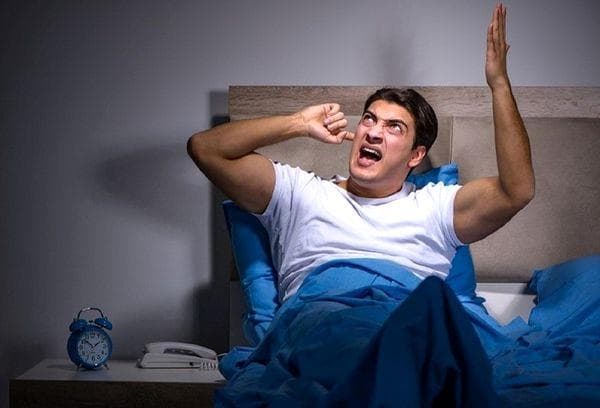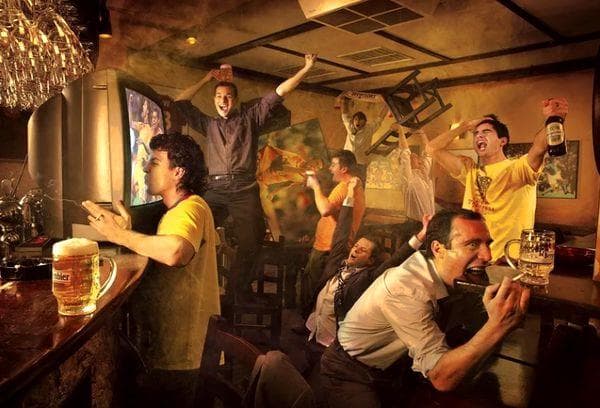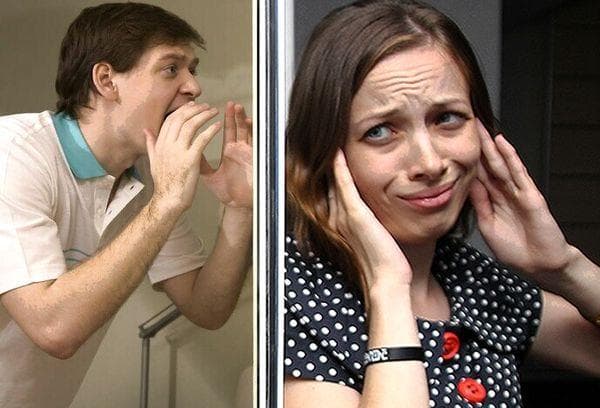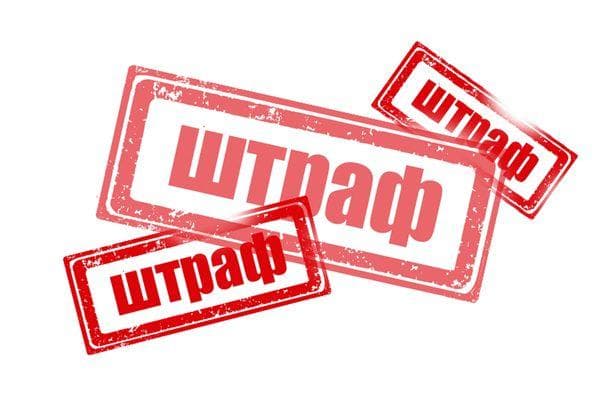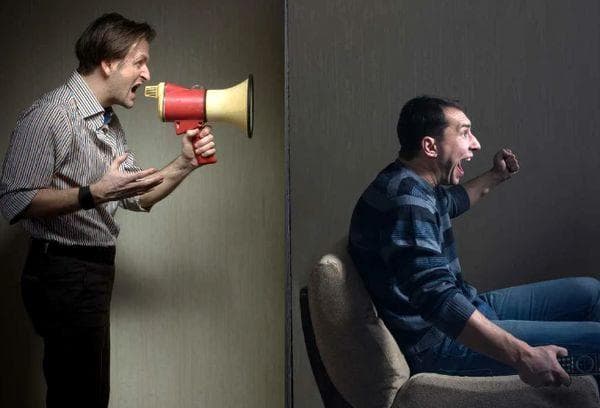The time according to the law when you can make noise in an apartment without being brought to administrative liability
Content:
- Noise level allowed in the apartment
- The time when noise in homes is permitted by law
- Time when it is legal to make noise in homes
- Situations where noise is generated on weekends and holidays
- Time for repairs
- How to react to noisy neighbors in the country?
- What liability is imposed on persons who create noise at inappropriate times?
In Russia there is no single law regulating the observance of silence by citizens. Each individual region has its own regulations, which stipulate the hours when you can make noise in an apartment without the threat of prosecution. At the same time, uniform standards for permissible noise levels in homes are applied in Russia. Based on them, general requirements for measuring noise levels in apartment buildings have been developed.

Noise level allowed in the apartment
Sanitary standards apply in Russia. They specify the permissible noise level in homes. These standards state that during the daytime the sound level in apartments should not exceed 55 acoustic decibels (dBA). This requirement applies to the time period from 7 a.m. to 11 p.m.At night, the sound level in homes should not exceed 45 dBA.
The specified sanitary standards, as well as GOST 12.1.036-81, establish the noise standard that is allowed in apartments. During the day it is 40 dBA, and at night – 30 dBA.
Who measures noise levels
Measuring noise in homes is the responsibility of Rospotrebnadzor. It is permissible to contact a specialized organization to carry out such measurements. But such a company must be accredited to measure noise levels in homes.
It is recommended to give preference to regional branches of Rospotrebnadzor, since they are official supervisory authorities. It is the Rospotrebnadzor authorities that give an opinion on the compliance of the noise level with hygienic requirements.
To measure the noise level in a residential building, you must:
- Compose a free-form application. Specify the regional division of Rospotrebnadzor as the addressee.
- Receive an employee of the supervisory authority on the agreed day. Measurements are carried out in accordance with the requirements of GOST and Methodological Instructions in three places and in quiet conditions.
- Sign the protocol drawn up by the Rospotrebnadzor employee.
If noise measurements show that the permissible values are exceeded, Rospotrebnadzor will issue an order requiring the culprits to eliminate the violation of noise level requirements in homes.
How to measure the noise level yourself
Modern mobile applications make it possible to measure the noise level in homes on your own. But such measurements will not be considered evidence if the fact that the noise level in the home is exceeded is established in court or other authorities. Only an accredited supervisory body (Rospotrebnadzor) has the right to take noise measurements.
It is recommended to take measurements yourself according to the following rules:
- Take measurements in at least three places in the apartment.
- Take measurements at a distance of 1.5 meters from windows, walls and floors.
- Take measurements only in silence.
- Take noise measurements from the street side with the windows open.
- Carry out noise measurements inside the apartment with the windows and vents closed.
One noise measurement session should be carried out until its level changes by more than 0.5 dBA over 30 seconds for constant noise and 15 seconds for intermittent noise. This requirement is contained in clause 2.7 of Guidelines 4.3.2194-07.
The time when noise in homes is permitted by law
Each region of Russia has its own time when residents are not allowed to make noise in their houses. It is fixed in the laws of the regions. The time of noise in homes in a particular region of the country may differ by several hours.
In Moscow and St. Petersburg
In the capital, Law No. 42 dated July 12, 2002 is in force. It establishes the time when residents of Moscow houses must maintain silence. By law, in the capital, night time is considered to be the period from 23:00 to 7:00 am. During the specified time period, it is prohibited to make noise in apartments in the capital.
In St. Petersburg, Law No. 273-70, adopted on May 31, 2010, is also in force. In Art. 2 of this Law at night, when residents of houses are prohibited from making noise, indicates the period from 10 pm to 8 am.
In Russian regions
Other regions of Russia also have their own time periods when citizens are prohibited from making noise.
| Region of Russia | Time when it is not allowed to make noise in houses |
| Republic of Adygea
Leningrad region |
23:00 – 7:00 |
| Kabardino-Balkarian Republic
Penza region |
22:00-6:00 |
| The Republic of Mordovia
Lipetsk region Pskov region Republic of Tatarstan |
23:00-6:00 |
| Chechen Republic
Arhangelsk region |
22:00-6:00 |
| Chuvash Republic
Krasnodar region Tomsk region Oryol Region |
23:00-7:00 |
| Krasnoyarsk region | 22:00-9:00 |
| Primorsky Krai
Nizhny Novgorod Region Novosibirsk region Vologda Region |
22:00-7:00 |
| Omsk region
Samara Region Murmansk region Novgorod region Kostroma region |
22:00-8:00 |
The Moscow region has its own Law numbered 16/2014-OZ dated March 7, 2014, regarding ensuring silence in homes. In Art. 2 of this Law talks about the ban on noise in homes from 9 pm to 8 am. Additionally, the law specifies the time from 1 pm to 3 pm as a period when noise cannot be made in houses. This requirement applies to working days.
Time when it is legal to make noise in homes
The sanitary standards number 2-2-4/2.1.8.562-96 indicate night time from 11 pm to 7 am. It is within this interval that it is forbidden to create noise. After 7 a.m. (in some regions after 8-9 a.m.), residents can make noise in their apartments, but within reason, so as not to violate the rights of other citizens.
On weekends and holidays, the quiet time is 12 hours (from 10 pm to 10 am). Outside this period, residents have the right to make noise within reason. The exception to the rule is New Year. Residents are allowed to make noise on December 31st from 11pm to 4am on January 1st.
Where to complain about noisy neighbors
If neighbors are making noise in an apartment building, then you need to contact law enforcement directly. This applies when noise occurs after 11 pm. The district police officer must appear when called and draw up a protocol. The case may later be sent to court.
Additionally, it is recommended to measure the noise level in the apartment. To do this, you need to contact Rospotrebnadzor.The report drawn up by the supervisory authority employee will serve as evidence of excess noise levels in the apartment, which will help resolve the case in court in favor of the applicant.
If noise is generated by shops and entertainment venues (cafes and clubs)
In Russia, shops, cafes and clubs are prohibited from making noise from 21:00 to 8:00. Plus, noise is prohibited between 1 and 3 p.m. on weekdays. On weekends, these establishments are prohibited from creating noise from 10 pm to 10 am. This also applies to the time from 13:00 to 15:00.
Issues related to violation of silence by shops, cafes and clubs are resolved by the police. If there is noise at night, you must call the local police officer, who will draw up a report. To confirm the fact of noise creation from shops and entertainment venues, you must write an application to Rospotrebnadzor with a request to take measurements. If the fact of noise creation is confirmed, Rospotrebnadzor issues a recommendation to the store or club to eliminate the violation.
Situations where noise is generated on weekends and holidays
Regional laws establish a ban on noise on holidays and weekends. Moscow Law No. 42 completely prohibits repair work in apartment buildings both on holidays and on Sundays. At the same time, the law distinguishes only Sunday as a day off (the rules of maintaining silence apply to Saturday as on a weekday).
Law No. 273-70, in force in St. Petersburg, in paragraph 7 of Art. 8 prohibits making noise in apartment buildings on weekends and holidays strictly from 8 a.m. to lunch (12 p.m.).
Time for repairs
In Moscow, the law establishes special times for carrying out repair work (including drilling walls with a hammer drill) in houses. In clause 1.1.Moscow City Law No. 42 states that repairs in an apartment building cannot be carried out between 7 pm and 9 am. It is also prohibited to make repairs from one o'clock in the afternoon to three o'clock in the afternoon.
In Art. 38 of Law No. 273-70, in force in St. Petersburg, states the possibility of carrying out repairs in houses from 8 to 22 hours. But it is always necessary to agree in advance on the schedule of such work with the residents or their representative. The schedule does not need to be agreed only in cases where repairs are done in less than one hour during the day.
According to the legislation of St. Petersburg, carrying out repairs in houses without approval of the schedule with the residents entails penalties. Its size ranges from 1-3 thousand rubles for citizens. Employees will pay 5-10 thousand rubles and organizations will pay 10-30 thousand rubles.
How to react to noisy neighbors in the country?
In summer cottages, the same noise rules apply as in apartment buildings. It is prohibited to make noise on weekdays from 22:00 to 8 am, and on weekends this ban applies to the time period from 22:00 to 10:00.
If neighbors in a summer cottage do not comply with the requirement of silence at the established time, then it is recommended to resolve the issue with the gardening association. To do this, it is necessary to organize a meeting and raise the issue of violation of the rules of silence by one of its participants.
If a member of the partnership continues to ignore requests and demands regarding compliance with the rules, it is recommended to contact the police. The district police officer will draw up a protocol. It will be the basis for the silence breaker to bear administrative liability.
What liability is imposed on persons who create noise at inappropriate times?
Citizens who violate the law regarding maintaining silence in their homes face liability.Violation of the requirements for silence is considered non-compliance with sanitary-epidemiological requirements.
Violators are liable under the Code of Administrative Offenses (Articles 6.3 and 6.4). The first article provides for citizens a warning or a fine of 100-500 rubles. The second article provides only a fine for citizen violators. Its size is 500-1000 rubles.
The capital has its own Moscow Code of Administrative Offences. It is subject to Article 3.13. It provides a warning. A fine of 1-2 thousand rubles may be imposed for residents who violate the requirement of silence at night. For violating officials, the fine is 4-8 thousand rubles, and for organizations - 40-80 thousand rubles.
In the Moscow region, noise at unauthorized times is punishable by a warning or a fine. For residents it is equal to 1-3 thousand rubles, for officials - in the range of 5-10 thousand, for organizations - in the range of 20-50 thousand. Also Law No. 16/2014-OZ in Art. 3.1 for violating silence for the second time within a year provides for an increase in the fine.
Residents in violation will be forced to pay 4 thousand rubles, officials - 15-30 thousand, organizations - 60-80 thousand. For three violations during the year, the amount of fines in the Moscow region increases even more (5 thousand for residents and up to 50 and 150 thousand for officials and organizations, respectively).
In St. Petersburg, according to Law No. 273-70, a fine can be imposed for any noise at night and unauthorized during the day. For citizens it is a minimum of 500 and a maximum of 5 thousand rubles. Officials will be forced to pay 25-50 thousand rubles.
The management of organizations will be forced to pay 50-200 thousand rubles for violation (clause 2 of article 8). Separately, this law prescribes a fine for the use of pyrotechnics at night.For citizens it is 1-5 thousand rubles, for officials and organizations similar to paragraph 2 of Art. 8 of the Law.
Noise at times not permitted by law will not be considered a violation in some cases. This applies to situations where violation of the requirements of silence is associated with force majeure situations, the holding of agreed events (including religious ones) and in connection with the celebration of the New Year.

